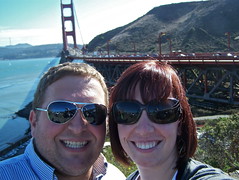 Over the last couple months I’ve been all over the map. I went back to Fargo to be ordained — which was awesome. I went to Denver for a conference with some fellow pastors, which was a great time. Apart from the physical map, I’ve been all over the map in many other [more metaphorical] ways.
Over the last couple months I’ve been all over the map. I went back to Fargo to be ordained — which was awesome. I went to Denver for a conference with some fellow pastors, which was a great time. Apart from the physical map, I’ve been all over the map in many other [more metaphorical] ways.
I have grown increasingly aware at how easy it has become to be a hater in an ever-growing digital world. People can spew venom and hate with surprising efficiency and with very little consequences, other than perhaps other people sending more hate back to them. In the past few weeks, I’ve started to see myself growing more cynical and buying into the notion that the best way to survive is to simply disengage.
But I’m done with that. It sucks. And, more importantly, it helps no one.
I was reading a blog by Tim Ferriss that had 5 great ways on dealing with haters, both church and secular. [Sidenote: it sucks that there are church haters.] And I think that these are essential for getting past negativity and into a much better headspace. In this case, I’m certain that these are just as much help to me as I hope they are to you.
1. It doesn’t matter how many people don’t get it. What matters is how many people do.
This is something I have to tell myself often. I also think this has some biblical basis as well. Only a few people really understood what Jesus was talking about or its meaning, and really the only did in light of his death. I think of this in terms of taking a different approach to a more “traditional”* way of doing things. In any new venture, the most important thing in dealing with haters, is not to focus on how many people are trying to detract from you, but to really focus on the people who see your vision and are enthusiastic about the future.
2. 10% of people will find a way to take anything personally. Expect it.
Ferriss says that “People are least productive in reactive mode,” And the church spends an awful lot of time in the reactive mode. This only multiplies the problem. You can’t respond to all criticism. And when you find this 10%, you’ll simultaneously realize that the bulk of their criticism doesn’t necessarily merit a response.
3. “Trying to get everyone to like you is a sign of mediocrity.” (Colin Powell)
It’s important to be tactical about how and when you respond to haters. Chip and Dan Heath in their book Switch talk about “bright spots”. These are certain people or groups that are doing good work toward which people are naturally gravitating. Rather than constantly trying to solve problems or get people who are always fighting you to like you, go toward the bright spot. Once you find this bright spot, try to see what makes it bright, and then clone it. Look at some of your church’s most successful programs. Why are they successful? What can you do to make that enthusiasm contagious into other ministries? It’s the same kind of thing with dealing with haters. Trying to please everyone or get everyone to like you will not allow you to focus as much attention on the bright spots.
4. “If you are really effective at what you do, 95% of the things said about you will be negative.” (Scott Boras)
And Scott Boras would know. The guy has more negative things said about him than almost anyone. But it speaks to a larger kind of ambition. When you introduce a big project, or an overhaul of an existing project, people will naturally be skeptical. They’ll say negative things about you to re-inforce the status quo. The bigger your impact and the larger the ambition and scale of your project, the more negativity you’ll encounter. It can be a hard thing to take, but the more heat you get, the more you’re onto something.
5. Keep calm and carry on.
This slogan has become a meme as of late, but it was originally produced by the British during World War II as a propaganda message to comfort people in the face the threat of Nazi invasion. The thing I like about Tim’s take on this is that he makes it clear. “Focus on impact, not approval.” It goes along with the previous 4. People will attack you. The important thing is what you do in the face of the attack. Keep calm and carry on.
That’s what I’ve learned and take forward from my time of succumbing to the cynicism that can [but doesn’t have to] go alongside dealing with haters. Now I just need to spend more time listening to these myself.
What kind of things do you do to deal with haters? What has worked? What hasn’t? Feel free to share some stories or tips of your own in the comments section below.
It’s good to be back.
Cheers,
Eric
* = I think the accepted definition of “tradition” actually borders more correctly on “nostalgia”. But I’ll write more about that later this week.

















